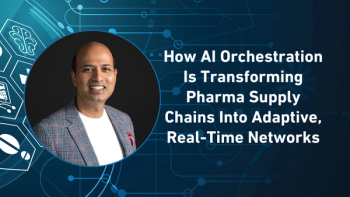
Patient Engagement Is Critical to Developing Breakthrough Treatments
Bruce Leuchter, CEO, Neurvati, discusses why patient engagement is essential to understanding rare diseases and driving the development of breakthrough therapies.
PC: What risks do you foresee for companies developing first-in-class therapies if patient perspectives are no longer formally incorporated into regulatory discussions?
Leuchter: Eliminating patient perspectives from regulatory discussions would remove a key source of value—especially in the context of rare or recently characterized diseases. In many of these cases, there are no formal natural history studies to guide therapeutic development. Without that foundational data, we must rely heavily on the insights and feedback from patients and caregivers to truly understand the disease.
While biological and mechanistic rationales are essential to evaluating a novel therapy, they don’t capture the full picture. The patient experience plays a critical role—not just in shaping our understanding of the condition but also in fostering meaningful engagement with the patient community. Whether you're a regulator, developer, or payer, incorporating these perspectives helps you form a more informed view.
If this input is removed from the regulatory process, a vital component is lost. Companies and payers can still engage with patient groups to gain insight, but the absence of a formal mechanism at the regulatory level limits the consistency and impact of that engagement.
That said, it’s not an all-or-nothing scenario. The patient voice can still influence drug development through other channels, but losing the dedicated regulatory avenue would be a setback. Ultimately, the goal is to develop novel medicines for patients. Involving advocates who deeply understand the disease—and who raise awareness of the real-world challenges patients face—is essential. Removing that from the process would, in my view, be detrimental.
Full Interview Summary: The proposed policy change by the Department of Health and Human Services (HHS) that could reduce formal mechanisms for patient advocate input in regulatory discussions poses significant risks to drug development, especially for rare and serious diseases. Patient advocates are crucial in helping developers understand the lived experiences of patients and caregivers, especially in conditions with limited natural history data. Their insights inform decisions around clinical trial design, site and endpoint selection, and regulatory strategies. Organizations such as GRIN Therapeutics have prioritized patient advocacy from the outset, integrating advocates into their teams to ensure ongoing dialogue and collaboration throughout development.
Historically, public participation has been instrumental in shaping healthcare policy. For newly recognized or genetically defined diseases, patient advocates often provide the only frame of reference for symptom progression and caregiver burden. This input is invaluable not only to developers and regulators but also to payers making reimbursement decisions. High-cost, innovative therapies must demonstrate broad impact across disease symptoms to justify value, and advocates help articulate which symptoms matter most to patients. Their contributions help define clinical endpoints that better capture treatment effectiveness, supporting both regulatory approval and reimbursement.
If formal patient input mechanisms at the federal level were removed, drug developers would lose a vital perspective at a critical decision-making stage. While engagement can continue informally—through interviews, surveys, and other methods—losing the regulatory touchpoint would weaken the system. Nonetheless, developers can and should continue gathering robust patient and caregiver insights and proactively share them with regulators. In doing so, they help bridge any gaps left by policy changes and sustain meaningful engagement that ultimately benefits all stakeholders—patients, developers, payers, and regulators alike. This collaborative approach remains essential to ensuring the development of effective, impactful therapies for rare and serious conditions.
Newsletter
Stay ahead in the life sciences industry with Pharmaceutical Commerce, the latest news, trends, and strategies in drug distribution, commercialization, and market access.




